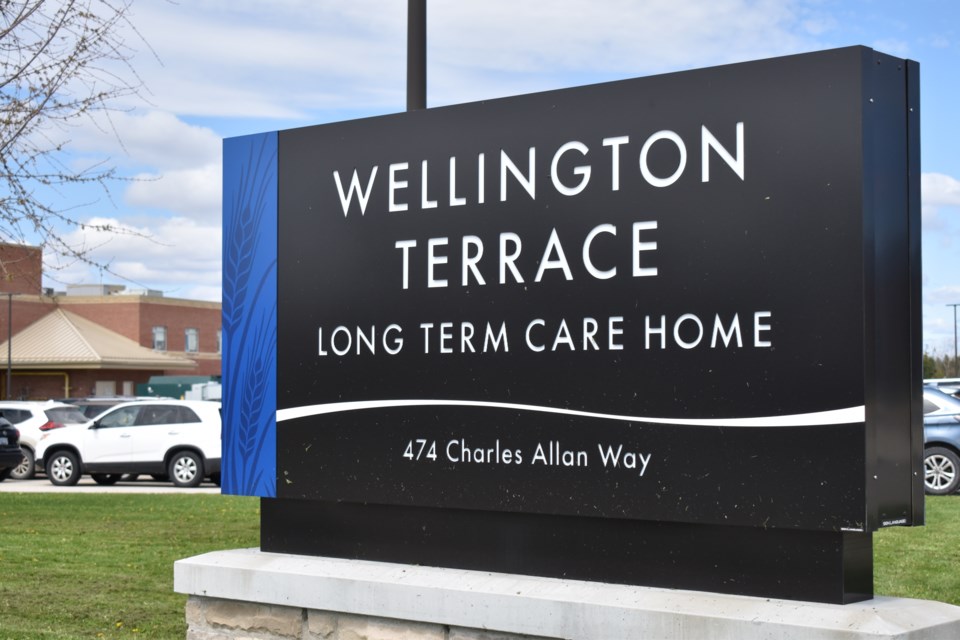Long-term care homes in Wellington County experiencing staffing shortages will be provided additional staffing support from the province through a pool of internationally educated nurses (IEN).
On Jan. 17, the Ministry of Health and Long-Term Care sent out a memo to long-term care licenses in the province, stating that they have identified a pool of IENs that can be deployed to long-term care homes in need of staffing support.
"In general, the long term care sector is in the midst of a human health resource crisis," said Andrea Ravensdale, county communications manager said in an email.
"Due to the high community spread of COVID-19, many of our staff have needed to isolate.To date, Wellington Terrace has not accessed agency staff. We are very fortunate to have County of Wellington staff available for re-deployment, but Wellington Terrace has applied to the programme and are waiting for notification if any potential staff are matched to our home."
Morriston Park Nursing Home in Puslinch has also applied online for the staffing opportunity as they are also experiencing a staffing shortage. Karen Bolger, administrator and director of care for the home, explained in a phone interview that they are short of three PSWs and one nurse. As such, their staff have had to do a lot of overtime work.
“We’re a small facility. We have 28 beds but under the directive, we can only fill 20 of our beds because some of our rooms have four beds in them, and we can only fill two beds in a room,” explained Bolger.
“We’re not suffering a great deal unlike some LTCs but we have to use agencies to top off the staff and it’s not ideal using agencies.”
Bolger noted that the home is currently in partnership with six agencies in the Wellington and Kitchener area. However, three of them are only helping them as the agencies are also experiencing staffing shortages.
“But there are no registered nurses available. So, we signed up and put an application in, letting them know how many vacancies we have. I haven’t heard from them yet, and that was three weeks ago. I put another request in because no one was following up with me. We’re still critically low,” said Bolger.
“Agencies aren’t ideal because there’s no continuity; there’s different staff that come in and their wages are astronomical. It’s not good for the residents to have different faces here all the time.”
The memo sent out by the respective ministries states that the move was in response to staff shortages caused by COVID-19-related absences or isolation requirements; that the goal was to support long-term care homes in need to hire staff on a temporary, and urgent basis to carry out the workload for essential services.
Bolger thinks that a staffing pool would help with the staffing shortage with regards to continuity and care as there will be regular staffing.
For the staffing pool, Ontario Health will work with participating long-term care homes and match them with individuals identified from the staffing pool, and will be supervised by a registered nurse or a regulated health care provider.
Those who have applied may use funding under their COVID-19 prevention and containment funding allocation to support the hiring of workers from the staffing pool, if other applicable program funding have been used.
However, in its program guide, the ministry also states that the work won't count towards IENs' college requirements to show evidence of practice.
“There are 20,000 internationally educated nurses that made Canada their home and they have been waiting for years to be processed by the College of Nurses for their license,” explained Doris Grinspun, CEO of the Registered Nurses’ Association of Canada (RNAO).
“We find this exploitative. We’re asking for the process for these IENs to be much faster because we need nurses working with patients. We know hospitals, long-term care homes need nurses but we want the process to be fair.”
While some IENs have recently been dispatched to work in hospitals, the RNAO says there are thousands of others who are ready and able to work. The association is once again urging the Ontario College of Nurses to move faster to register IENs to allow them to work in the province.
Grinspun explained that IENs are part of the solution to the major staffing shortage the healthcare system is experiencing in Ontario. However, she wants the provincial government to repeal Bill 124, increase compensation significantly, and decrease workloads to retain the current nurses.
